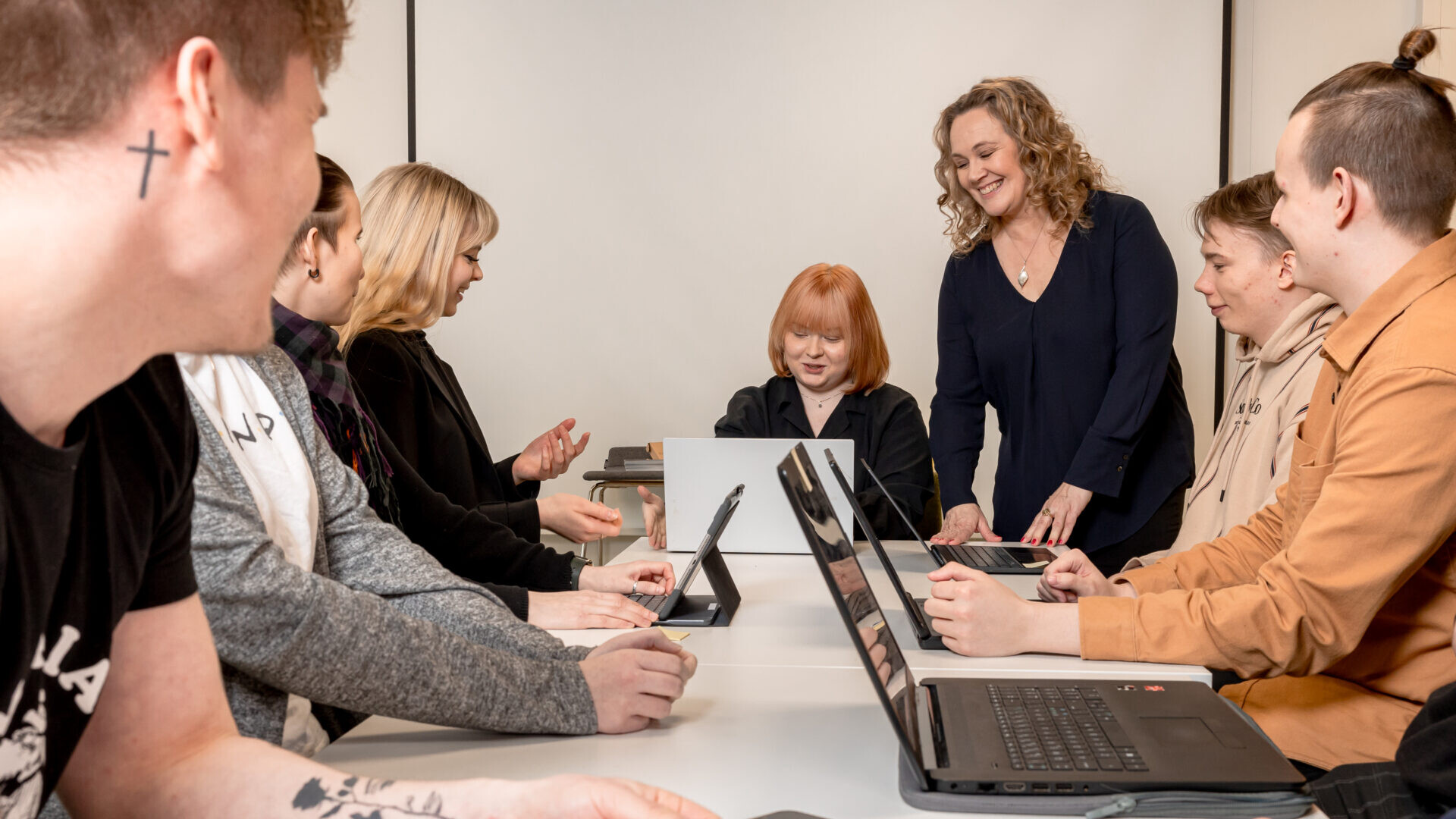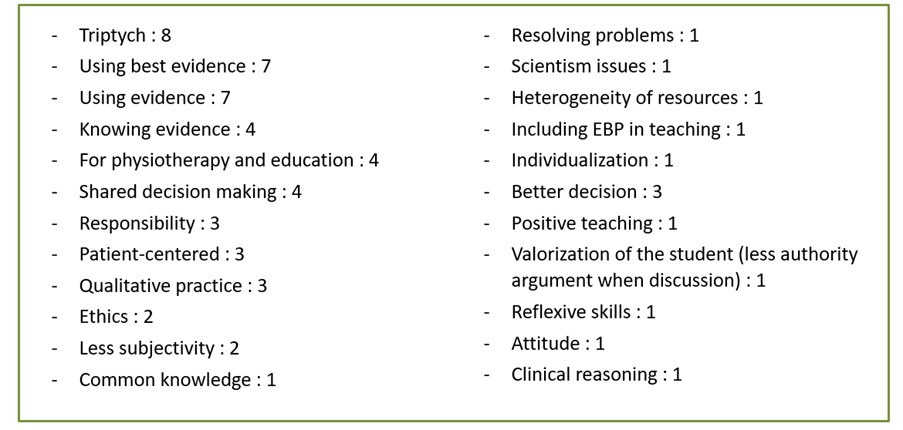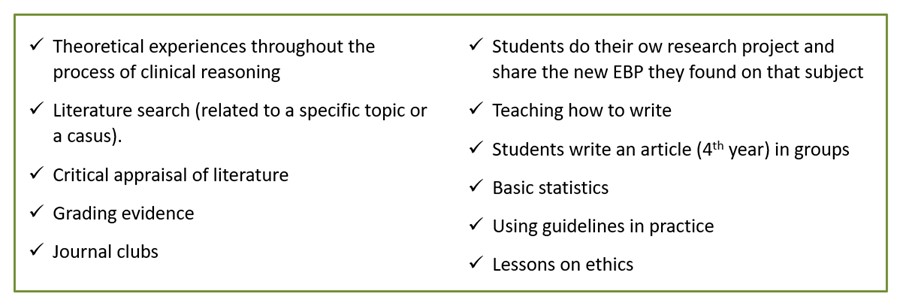
Savonia Article: Evidence-based Practice – Experiences from Teachers and Students
#SavoniaAMK
#SavoniaUAS
Background
The European Network of Physiotherapy in Higher Education (ENPHE) gathered at the autumn conference to discuss the theme “Physiotherapy Education in an Agile World”. ENPHE is a leading association for higher education in physiotherapy in Europe, and its main aim is to anticipate the trends of a changing society that shape professional activities and education, bringing them into the development of physiotherapy education. ENPHE’s open and innovative cooperation involves university teachers, students, and professionals. ENPHE’s work takes place through working groups under different themes. The working groups are divided into four main pillars: education, professional factors, global factors, and research. The aim of the research group is to facilitate research among ENPHE members. This blog post describes the results of research group workshops which were held at the ENPHE’s autumn conference from 15th to 17th September, 2022. The aim of the workshops was to investigate experiences and perceptions of evidence-based practice (EBP) in physiotherapy education.
Workshop and data collection
Data were collected during two workshops (one and a half hours hrs. each) offered on consecutive days of the ENPHE conference. All participants at the conference (teachers, other professionals and students) were invited to sign up for the workshops which were advertised in the conference programme.
A total of 22 teachers and students signed up: 13 for the first workshop and nine for the second one. Three research group members acted as facilitators and writers within discussion groups in both workshops and two research group members led the workshops.
The process for both workshops was as follows: Participants were informed that the aim of the workshops was to “scan the participants’ brains” about EBP learning / teaching methods, and that a summary of results would be published as a blog article. The participants were randomized into discussion groups of four to five people, and one facilitator joined each group. After a few minutes for introduction within each group, participants received three EBP questions, one by one, in a fixed order: (1) What is EBP for you? (2) What kind of EBP learning / teaching experiences do you have? (3) What would be concrete examples of “dos and don’ts”/ “good and bad” in EBP learning/ teaching? For each question the participants were led through the same routine of five minutes in silence to reflect and write down their answers and thoughts. Thereafter, participants had 10 minutes to share and explain their thoughts to other group members and the facilitators/ writers noted down any new reflections and emerging answers. Finally, five minutes were used to share some findings among the discussion groups. Before concluding the workshop, the workshop leaders collected all the notes from participants and facilitators. In the analysis, all notes were thoroughly read, and main themes were formed.
Results of the workshop
The first question was: “What is evidence-based practice for you?”. In Picture 1, you can see the frequency of concepts reported by participants during the two group sessions. Based on the participants answers, EBP is a well-known concept and evidence-based knowledge is used when studying or teaching in different kind of situations.

The second question was: “What kind of EBP learning/ teaching experiences do you have?”
Most of the participants described EBP as being integrated and/or an implicit part of the physiotherapy curriculum at their home institution. EBP-related activities which are conducted at the home institutions of the workshop participants are shown in Picture 2.

Furthermore, the participants mentioned that EBP is very theoretical and conceptual. Participants presented that its integration in lessons, depends on the lecturer. In addition, participants mentioned that teachers need more education on this topic. Workshop participants four recommendations concerning EBP are shown in Picture 3.

The third question was: “What would be concrete examples of “dos and don’ts”/ “good and bad” in EBP learning/ teaching?” The answers to this question are mostly related to the relationship between physiotherapy study and clinical practice. Picture 4 and Picture 5 show the positive and negative experiences (“good and bad”) described by the workshop participants.


Summery and future development ideas
Based on the workshop results, EBP is a topic which needs more research and developmental work. In the future, the work should focus on the development of EBP curricula, EBP teaching methods, and competence of the teachers that use the methodology. To facilitate this work, a scoping review article on the EBP topic will being written. Furthermore, research is needed to learn more about the experiences of students and teachers concerning EBP teaching methods. That work is possible in ENPHE’s research group with active partners. The new development work will be initiated in the year 2023.
Authors:
Äijö M, PhD, principal lecture of gerontology and rehabilitation, Savonia University of Applied Sciences, Finland
Wagener M, PhD, lecturer and senior researcher Physiotherapy education, Rotterdam University of Applied Sciences, Netherland
Pallot A, PT, MSc – Lecturer – CEERRF ; Institut d’Ingénierie de la Santé (UPJV), France
Pavlu D., Assoc. Prof. Charles University, Czech Republic
Arnadottir, S.A. professor in physiotherapy and gerontology, University of Iceland, Iceland
References:
The European network of physiotherapy educators (ENPHE). a.d. In available: https://www.enphe.org/